In recent days, public opinion has paid much attention to the Draft Decree on the mechanism to encourage the development of rooftop solar power, which includes the content that "individuals who choose to generate surplus electricity into the power system will have the power unit record the electricity output at a zero price and will not be paid".
Prof. Dr. Tran Quoc Tuan, INSTN University, Paris Saclay University, France; Research Director & Fellow scientist, CEA (Alternative Energies and Atomic Energy Commission); Honorary Professor, Lecturer at the University of Electricity took the time to share with Industry and Trade Newspaper about this issue.
- From the perspective of a scientist , how do you view the regulation "electricity units record electricity output at zero price and are not paid"?
Prof. Dr. Tran Quoc Tuan: Article 5. Development of self-produced and self-consumed rooftop solar power has been divided into 2 types: (1) Self-produced and self-consumed rooftop solar power connected to the national power system and (2) Rooftop solar power not connected to the national power system. The regulation "electricity units record electricity output at a flat price and are not paid" belongs to type 1. Usually, regulations need to be harmonized between grid management agencies, solar power producers and consumers.
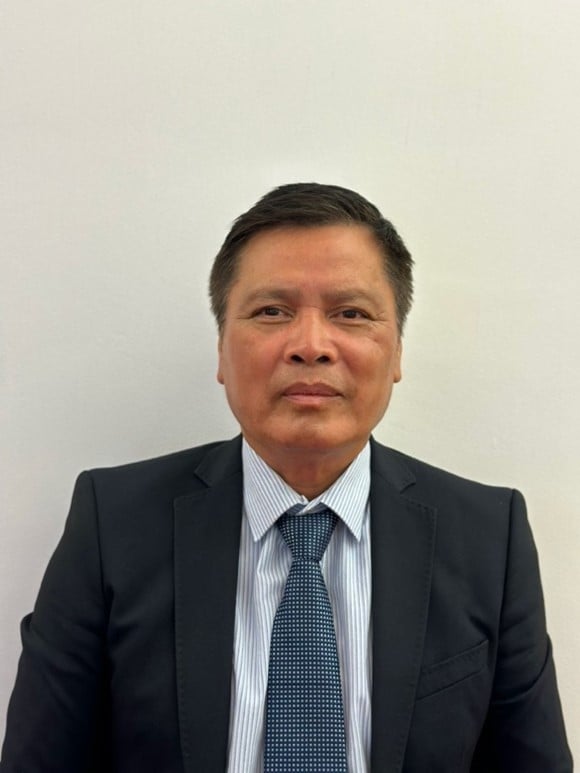 |
| Prof. Dr. Tran Quoc Tuan, INSTN University, Paris Saclay University, France; Research Director & Fellow scientist, CEA (Alternative Energies and Atomic Energy Commission); Honorary Professor, Lecturer at the University of Electricity. |
In my opinion, the regulation on self-produced and self-consumed rooftop solar power is very good, but "the power unit records the electricity output at a flat price and is not paid" is necessary at present when the current power system cannot meet the needs of large-scale development. This regulation can partially reduce the pressure and impact of large-scale solar power on grid operation.
- So why did the drafter have to make such a controversial provision, sir?
Prof. Dr. Tran Quoc Tuan: Promoting the development of solar power is the right policy and the right trend in the world, because solar power is a clean and very competitive form of energy, which means it is cheap compared to other forms of energy. Moreover, it allows for both concentrated and decentralized development to electricity consumers in the low-voltage grid. In fact, if solar power is exploited well, it brings great benefits in terms of economy , technology and environment. But in addition to the great benefits, solar power also brings many consequences to the operation of the power grid due to its irregularity (intermitency), and especially the power grid integrated with a large amount of solar power such as affecting stability, voltage fluctuations, frequency, overload, protection, etc.
Grid operation must ensure safety, economy and must have solutions to minimize the above risks. For grid operation, the ideal is that electricity production sources are consumed on site. Therefore, this regulation on developing self-produced and self-consumed rooftop solar power is technically reasonable. In my opinion, this regulation is a temporary solution to limit the amount of solar power integrated into the grid while the grid is not yet able to absorb all of this type of energy. Rooftop solar power is a good solution to take advantage of existing infrastructure to develop solar power without occupying land.
- What role does science and technology play in recent debates about self-produced and self-consumed rooftop solar power? In fact, there is a view that some people are promoting the populist view of “wasting solar power”?
Prof. Dr. Tran Quoc Tuan: The scientific and technical factors play a very important role in explaining the balance of power in the operation of the grid as well as ensuring safe and economic operation. Should there be a scientific assessment of the economic, technical and environmental aspects to explain regulations such as: The impact of solar power on grid operation; on technical issues, why is solar power connected to the grid and can it not be connected to the grid? How much solar power can the current grid absorb?
| Therefore, this regulation on developing self-produced and self-consumed rooftop solar power is technically reasonable. In my opinion, this regulation is a temporary solution to limit the amount of solar power integrated into the grid while the grid is not yet capable of absorbing all of this type of energy. |
Solutions to increase the solar power integration content for the grid; the benefits of self-producing capacitors; how much is the current investment rate and how much is the profit if the price is different for small households (3-9 kW), larger households and industrialists, businesses. If the assessment is good and some typical examples are given with different types (calculated by installed capacity such as 3, 6, 9 kW... 100, 250, 500 kW and larger), the regulation will be highly convincing.
In fact, there are times when the grid requires a reduction in solar power generation (not always a requirement to reduce to zero) or a negative electricity price, but this only occurs at certain times of the year. Therefore, there is a view that there are some people who advocate the populist view of "wasting solar power", which is also reasonable because small appliances, investing in developing solar power, have to find ways to control it from being transmitted to the grid when the grid cannot absorb it. But I think this is only a temporary solution at present.
- What do you think about the debates surrounding the above story and what lessons does it show in policy making?
Prof. Dr. Tran Quoc Tuan: Policies need to be built according to a roadmap, short-term, medium-term and long-term (2050). In fact, we also have master plans (which can be considered as Roadmaps), such as the current Power Plan 8, but we still have a huge gap between the master plan and reality.
For rooftop solar power, there should be cooperation in research between universities, research institutes, management agencies and electricity production enterprises on economics, technology and environment for policies. For grid-connected rooftop solar power, there should be a specific assessment and research for each type of production and consumption household, calculated according to installed capacity.
- What challenges will regulators face in implementing and administering this regulation if adopted?
Prof. Dr. Tran Quoc Tuan: If this regulation is passed, there will be many challenges for solar power producers and management agencies such as: Licensing; Calculating to not exceed the allocated capacity in the plan to implement the national power development plan; Choosing to keep selling at zero and reduce capacity to zero (must be equipped with online capacity reduction equipment); Checking what is a true roof covering! Regulations on roof covering construction; Safety and fire prevention; How to calculate and manage zero output.
- Finally, what are your suggestions or recommendations for finalizing the decree and ensuring that this policy will bring the greatest benefits to both consumers and rooftop solar?
Prof. Dr. Tran Quoc Tuan: The decrees need to ensure that this policy will bring the greatest benefits to both rooftop solar developers and grid operators. Further studies need to be completed such as:
There should be a solar power purchasing policy suitable for each type of solar power producer, calculated according to installed capacity (3, 6, 9 kW... 100, 250, 500 kW and larger) to avoid waste.
Encourage the installation of solar power storage (for example using batteries) to increase self-production and self-consumption capabilities.
Businesses with excess solar power can sell it to neighboring businesses to avoid having to reduce their generation capacity to zero.
Solar power generation clusters (geographically clustered groups of households close together) can exchange capacity with each other to avoid having to reduce generation to zero.
Quarterly price adjustment.
Thank you very much!
Source: https://congthuong.vn/gs-tskh-tran-quoc-tuan-chua-mua-ban-dien-mat-troi-mai-nha-la-giai-phap-tinh-the-hien-nay-319443.html












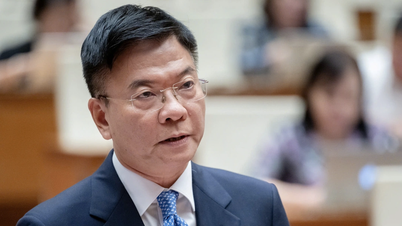
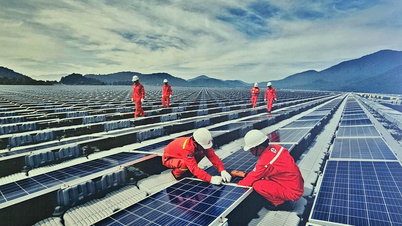

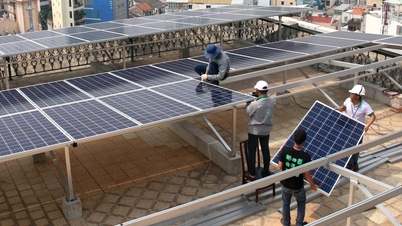









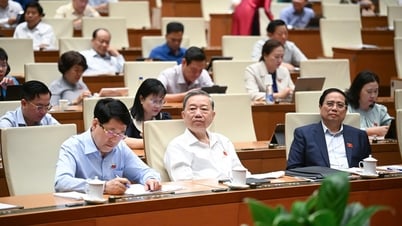








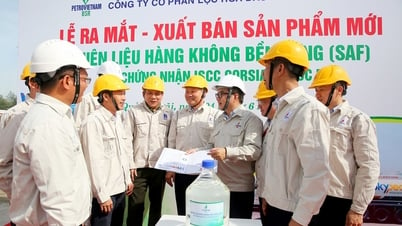


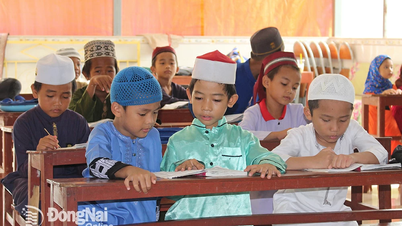












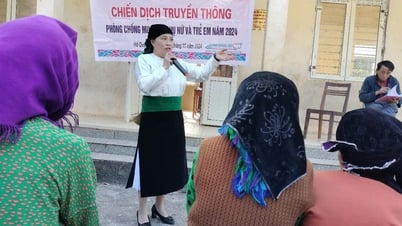








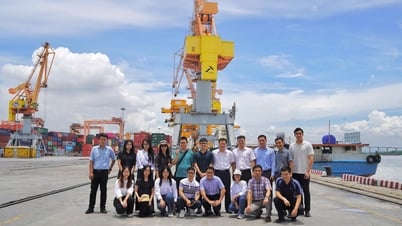



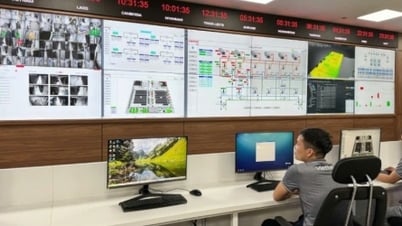






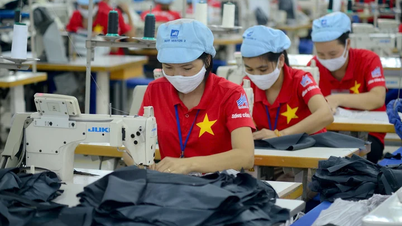



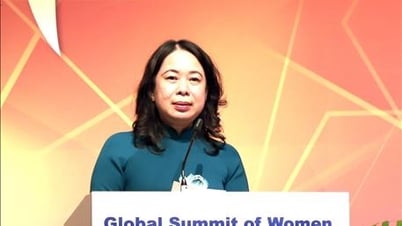



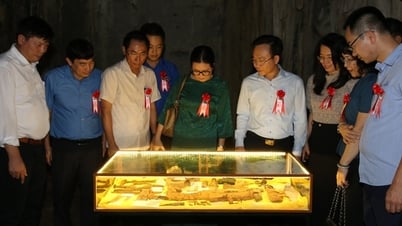










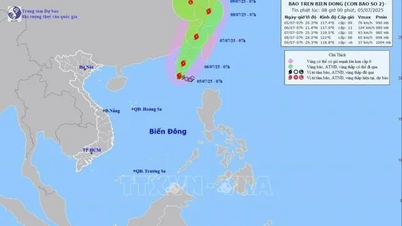

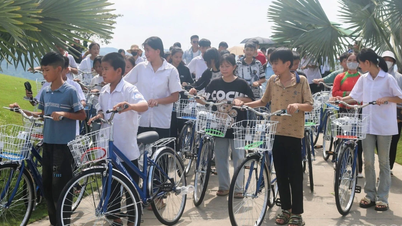

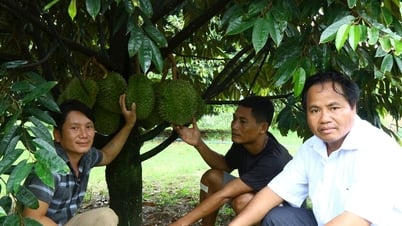



![[OCOP REVIEW] Bay Quyen sticky rice cake: A hometown specialty that has reached new heights thanks to its brand reputation](https://vphoto.vietnam.vn/thumb/402x226/vietnam/resource/IMAGE/2025/7/3/1a7e35c028bf46199ee1ec6b3ba0069e)









Comment (0)